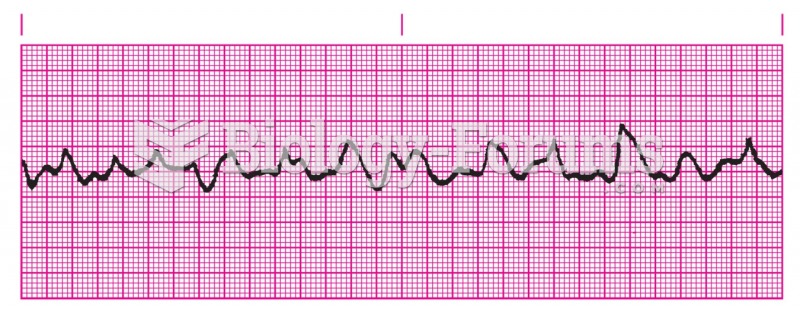Answer to Question 1
Correct Answer: 2
Rationale 1: Increasing the rate of lidocaine would worsen symptoms and could lead to ventricular dysrhythmia and subsequent cardiac arrest.
Rationale 2: The first signs of lidocaine toxicity usually involve the CNS and include confusion, anxiety, tremors, and other symptoms. The infusion should be discontinued immediately, and the health care provider notified.
Rationale 3: Oxygen should be administered, but this is not the first action the nurse should take.
Rationale 4: The health care provider should be notified, but this is not the first action the nurse should take.
Global Rationale: The first signs of lidocaine toxicity usually involve the CNS and include confusion, anxiety, tremors, and other symptoms. The infusion should be discontinued immediately, and the health care provider notified. Increasing the rate of lidocaine would worsen symptoms and could lead to ventricular dysrhythmia and subsequent cardiac arrest. Oxygen should be administered, but this is not the first action the nurse should take. The health care provider should be notified, but this is not the first action the nurse should take.
Answer to Question 2
Correct Answer: 3
Rationale 1: While digoxin (Lanoxin) may be prescribed to help control the ventricular rate associated with atrial fibrillation, it would not be the drug of choice for a new-onset atrial fibrillation that could be converted to normal sinus rhythm.
Rationale 2: Disopyramide (Norpace) is usually only given to clients with life-threatening ventricular tachycardia.
Rationale 3: Ibutilide (Corvert) is a drug of choice for rapidly converting atrial fibrillation to normal sinus rhythm.
Rationale 4: Lidocaine (Xylocaine) is not effective in treating atrial dysrhythmias.
Global Rationale: Ibutilide (Corvert) is a drug of choice for rapidly converting atrial fibrillation to normal sinus rhythm. While digoxin (Lanoxin) may be prescribed to help control the ventricular rate associated with atrial fibrillation, it would not be the drug of choice for a new-onset atrial fibrillation that could be converted to normal sinus rhythm. Disopyramide (Norpace) is usually only given to clients with life-threatening ventricular tachycardia. Lidocaine (Xylocaine) is not effective in treating atrial dysrhythmias.







